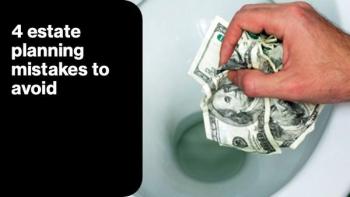
Four Types of Physicians Who Are Financially Self Destructive
Do any of these caricatures describe you or other physicians you know? If so, your wealth could be in grave danger.
Most of our discussions in this column concern asset protection, wealth, law, and business for physicians and medical practices. We most often focus on external threats and the risk-management solutions available to protect you from them but the one thing that is hardest to protect most professionals from is ultimately themselves. This week we take a look at common types of financially self-destructive behavior by doctors.
The Internet Explorer
One of the most dangerous things in the world to itself is a physician with an Internet connection. Doctors of all types have displayed extraordinary intellect and focus in their academic and professional achievements. But just as Medline can educate me, reading it does not make me a qualified doctor. It’s difficult, if not impossible, for any amount of self-study to replace the experience and guidance of specialized professionals. The Internet in particular is a perilous place as many of the best looking websites and book covers conceal advice of speculative value and little professional accountability. Every authority you read on any financial or legal topic has both a particular range of real world experience and a personal bias towards certain strategies, including this column itself. Be sure you know the real credentials of the expert you settle on.
The Mikey (“He Hates Everything”)
This doctor has negative baggage from a past experience, in some cases two decades or more ago, with one specific professional that colors everything he does. This type of doctor is also typically guilty of one of the most
The Lottery Winner
You deserve to enjoy the fruits of your labors; and in fact, that’s the focus of my professional practice. But spending without limits is as dangerous as inaction, especially when it involves leveraged debt. We’ve seen doctors with mid-six and even seven-figure incomes spend themselves into disaster. We also often see that those with destructive spending habits are often forced or encouraged to continue this reckless spending by their spouses and families who either don’t know the stress the primary bread winner is under or they just don’t care as long as you are willing to go back to work every day. The nicest home on the block is simply a tomb if you kill yourself paying for it, so create a realistic budget that gives you breathing room and carefully limit both your families’ expectations and the fixed personal and professional overhead obligations you incur. The most successful people I work with who came through the recession we’ve all faced for so long had several common traits, a key one was the ability and willingness to set ego aside and prioritize and adjust their spending habits to their actual cash flow and the realities of the current economy. If you are already spending at the limits of your income you may already be in trouble; carefully examine your spending, debt load, and how long you would be solvent if your cash was disrupted or reduced.
Doctor Scrooge
In stark contrast to the Lottery Winner is Doctor Scrooge. Proud of her thrifty ways and the 15-year-old Honda she refuses to let go of to the horror of her teenage daughter, this doctor won’t spend a dime on anything including herself and some essential planning her family needs. She borrowed her employment manual from a doctor friend in another state and wrote her practice’s name in, uses E*TRADE to manage the savings account she can’t bring herself to actually invest, uses TurboTax instead of a CPA who could help maximize deductions and implement tax-savings plans, and has the cheapest insurance she could find. As she cuts every one of these corners she exposes herself and the fruits of her labors to a variety of unnecessary risks and the unlimited expenses associated with each of those risks.
Do any of these five types describe you, even a little? If the answer is yes, I suggest you take a closer look at how your financial behaviors are affecting your overall life and wealth, and perhaps consult with your financial planner on how to turn things around.
Newsletter
Optimize your practice with the Physicians Practice newsletter, offering management pearls, leadership tips, and business strategies tailored for practice administrators and physicians of any specialty.








